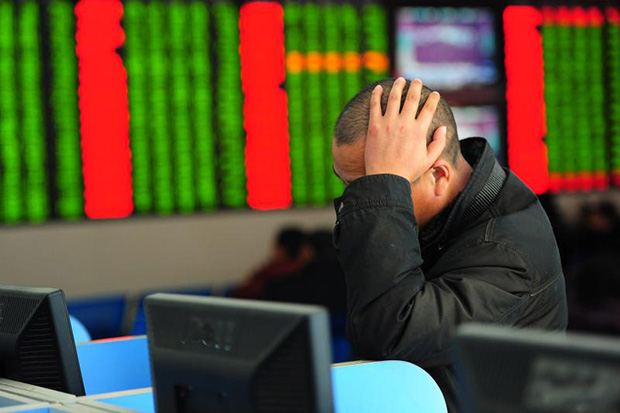
HONG KONG — Shanghai stocks dropped 3.23% by the close on Thursday, as worries over the state of the world's number two economy overshadowed a huge cash injection into the financial system by China's central bank.
The benchmark Shanghai Composite Index tumbled 96.21 points to 2,880.48 -- its lowest close since December 2014 -- on turnover of 203.6 billion yuan (US$31.0 billion).
The Shenzhen Composite Index, which tracks stocks on China's second exchange, slumped 4.01%.
Hong Kong tumbled 1.82%, Tokyo's Nikkei lost 2.40%, Seoul shed 0.30% and the Stock Exchange of Thailand main index went down 0.27%.
"Both external and internal factors weighed on market sentiment today, especially the plunges in Hong Kong and other global markets," Phillip Securities analyst Chen Xingyu told AFP. "The depressed performance of major markets has constrained investors."
In the Philippines, the index dropped 2.80% at the close in Manila, its lowest level since February 2014. Twenty-eight of its 30 stocks fell. The gauge, which entered a bear market last week after a 20% slide from a record high in April, has lost more than 12% this year.
Foreign investors have pulled $83 million from Philippine stocks in January, poised for a record 10th straight month of withdrawals, as uncertainty over China and slumping oil prices raise concern over global growth and damp demand for riskier assets.
“Philippine stocks are among the most expensive in the region and some investors are questioning if that is warranted,” said Jonathan Ravelas, the Manila-based chief market strategist at BDO Unibank Inc, the Philippines’s largest bank by assets. “The Philippines is in a better shape than most economies in the region, but if investors have sold holdings in other markets, then they have to also sell here because that would have raised the weighting of Philippine stocks. This current selloff is exaggerated.”
Markets from Asia to the Americas have been hammered this year as oil prices sunk to 12-year lows and traders fear about the impact of slowing Chinese growth on the global economy.
On Tuesday, China said gross domestic product expanded 6.90% in 2015, the slowest growth since 1990. And while it met analysts' expectations and fuelled hopes of monetary easing by Beijing, it reinforced worries about a crisis in the economic powerhouse.
China's central bank on Thursday pumped 400 billion yuan into the money market, which Bloomberg News said was the most in three years through regular open market operations.
The People's Bank of China also supplied 352.50 billion yuan to 20 financial institutions through its medium-term lending facility on Thursday, and offered additional funds through another facility but did not give a specific amount, statements showed.
So far this week, the central bank has flooded the financial system with more than 1.5 trillion yuan, separate statements showed, to provide sufficient liquidity around the traditional Chinese New Year, which some analysts have likened to a loosening of monetary policy.
"The liquidity injection didn't lift the market as the fundamentals for (mainland shares) are still weak and the international environment is bad," Zheshang Securities analyst Zhang Yanbing told AFP, referring to domestic shares.
